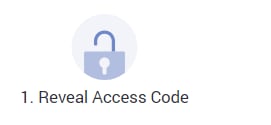Buy a new version of this textbook and receive access to the Connected eBook with Study Center on Casebook Connect, including lifetime access to the online ebook with highlight, annotation, and search capabilities. Access also includes practice questions, an outline tool, and other helpful resources. Connected eBooks provide what you need most to be successful in your law school classes.
Business, Defamation, and Privacy Torts by Richard A. Epstein and Catherine M. Sharkey organizes topics suitable for an advanced, upper division course (or seminar) on Torts.
When and why, if ever, are economic harms—as opposed to physical and emotional harms—recoverable in tort? There are certain breaches of duty for which pecuniary losses must be honored, lest the common law fail in its promise to prevent force and fraud. Just as we all enjoy the right to be free from the threat of physical harm, so too we have the right to receive protection for the ability to make new contracts free from threats of force and force, and to be assured that others will not seek to knowingly induce breach of our existing contracts. Additionally, we also deserve to have our reputation, and those of our goods and services, protected from harmful falsehoods. Also, privacy rights of two sorts also receive protection: first the right to keep personal information about ourselves private, and second to control the use of name and likeness in commercial and business ventures.
The expansion of liability in these areas may at once be novel, dubious, and nonetheless potentially morally and socially desirable. Students must examine the full policy and doctrinal challenges of these debates. Setting selective limits on the recovery of pecuniary losses is how the common law has adapted to economic advancements since its early creation in England. From the Statute of Labourers of 1349 to the artificial intelligence controversies of today, students will be able to grapple with these legal adaptations to social change.
Highlights of the First Edition:
- Setting forth the “economic loss rule(s)”—where the courts most directly grapple with the question whether and why pecuniary losses must be honored—to organize the study of business torts.
- Introducing a conceptual framework of “contractual privity” and “stranger” economic loss rules as a way to frame contemporary issues such as data breaches.
- Focusing on the pressures to expand common law fraud via statutory actions that dispense with such traditional elements as reliance and harm.
- Highlighting products liability in the modern digital era, assessing whether similar online retailers and distributors are treated as sellers for goods that other parties sell on their websites.
- Addressing the emergence of public nuisance as modern business tort, exploring its application in opioid and global warming cases.
- Questioning the continued viability of Communications Decency Act Section 230 immunity for internet service providers in dealing with the spreading calculated falsehoods.
- Recognizing how an expanded Internet catapults’ data privacy to the forefront of discussion of privacy law.
- Inclusion of great older cases, both English and American, that have proved themselves time and again in the classroom, and which continue to exert great influence on the modern law.
- Preservation of both historical and conceptual continuity and transformation between the present and the.
- Emphasis on alternative visions of tort law—both classical liberal and progressive—as they developed in the nineteenth and twentieth centuries, and the ever larger footprint of the twenty-first century.
- Updating traditional material to keep pace with new technological developments, which occur both through common law and, increasingly, through legislation and regulation.
- Comprehensive Teachers’ Manual

![Business, Defamation, and Privacy Torts [Connected eBook with Study Center],9798892075572 9798892075572](https://simages.ecampus.com/images/d/5/572/9798892075572.jpg)










